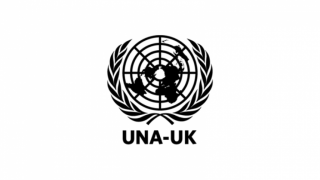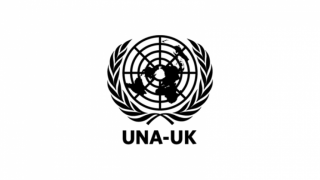After hundreds of civilians have been killed, there is more uncertainty and opacity than ever about the state of Iran’s nuclear programme. The ceasefire announced between Israel and Iran is far better than the alternatives, but this was an unnecessary war of choice, as diplomatic routes were still available to try to reach a verifiable agreement to ensure Iran’s nuclear programme was not weaponised. Decisions taken now will have major consequences for the nuclear nonproliferation regime and the global order for years to come.
The unilateral attacks by the US and Israel appear to be illegal under the UN Charter without credible evidence having been presented of an imminent threat from Iran. Instead, Western intelligence assessments had repeatedly found that Iran had not moved to weaponise its nuclear programme. In the meantime Iran had started talking to the Trump administration on the terms of an agreement to stop producing the highly enriched uranium which is one of the primary causes of international concern.
In a divided and insecure world, the Nuclear Non-Proliferation Treaty (NPT) is already under multiple strains. These include non-nuclear states’ accurate objections that all five of nuclear-armed states in the NPT are failing to meet their own obligations to negotiate the complete multilateral nuclear disarmament promised by Article VI of the Treaty. The NPT bargain will be all the harder to sustain now that an NPT member state, which was not believed to have nuclear weapons, has had its internationally inspected nuclear facilities bombed by two nuclear-armed states. It is unprecedented for an NPT signatory to do this.
While the US is an NPT signatory, Israel itself has an undeclared nuclear weapons programme which is not under international safeguards; has not signed the NPT; is violating international law with its decades-long occupation of the Palestinian Territories; and is committing war crimes in Gaza. For its part Iran has a track record of threats towards Israel and of support for non-state armed groups that contribute to multiple regional conflicts, as well as going after dissidents overseas.
Sustained, peaceful, multilateral work for non-proliferation, based on a global consensus, has repeatedly proven more effective than military strikes, such as Israel’s bombing of Iraq’s nuclear programme in 1981, which prompted the Iraqi government to redouble its efforts to build a clandestine and dispersed weapons programme (dismantled after 1991). Many nuclear experts have flagged risks that the attacks may tip Iran’s strategic calculations in favour of acquiring a nuclear weapon in future.
Thus, the most immediate concern is that Iran’s stock of highly enriched uranium may now have been moved to undisclosed locations outside of International Atomic Energy Agency (IAEA) safeguards. There are also substantial risks that Iran may expel IAEA inspectors and start the process of withdrawing from the NPT.
We urge all countries to prioritise the survival of the NPT and to protect the independence and credibility of the IAEA. The Agency has an essential and irreplaceable role in the non-proliferation system. It is profoundly unhelpful to that role to use its most recent reporting on Iran as a retrospective casus belli, when the Board of Governors had specifically called for diplomacy. We recall that Iran had agreed to keep enrichment at below 4% under the JCPOA agreement signed with the P5+1 in 2015, and that it began openly to enrich uranium to higher levels after the US unilaterally abrogated that agreement in 2018.
We urge Iran not to withdraw from the NPT, noting that this could trigger a wider domino effect; that nuclear weapons represent a catastrophic threat to humanity and the planet; that 93 countries including many in the Non-Aligned Movement have signed the Treaty for the Prohibition of Nuclear Weapons, calling for a total ban. The UK should help to chart a way forward for renewed diplomatic engagement with Iran to be based clearly and explicitly on acknowledging the NPT rights and restrictions that apply to all states. The diplomatic tracks have been damaged, but both the US and Iran have signalled they may be willing to try them again.
These issues go right to the heart of the multilateral system. The UN was formed in part to prevent future world wars in a world that had discovered the atomic bomb, and the first UNGA resolution focused on preventing nuclear proliferation. Preventing nuclear proliferation, promoting disarmament and preventing nuclear war are fundamental common interests of humanity.
Jane Kinninmont, Chief Executive of UNA-UK, says:
UK and European leaders should be working to protect the multilateralism and international law that they say they stand for, even if they are nervous of the US President.
The new UK national security strategy has barely a word to say on the value of multilateral cooperation. But on the vital security issue of preventing nuclear proliferation, multilateral agreements and inspections have a much better track record than air strikes, which have almost always proven only a temporary setback.






